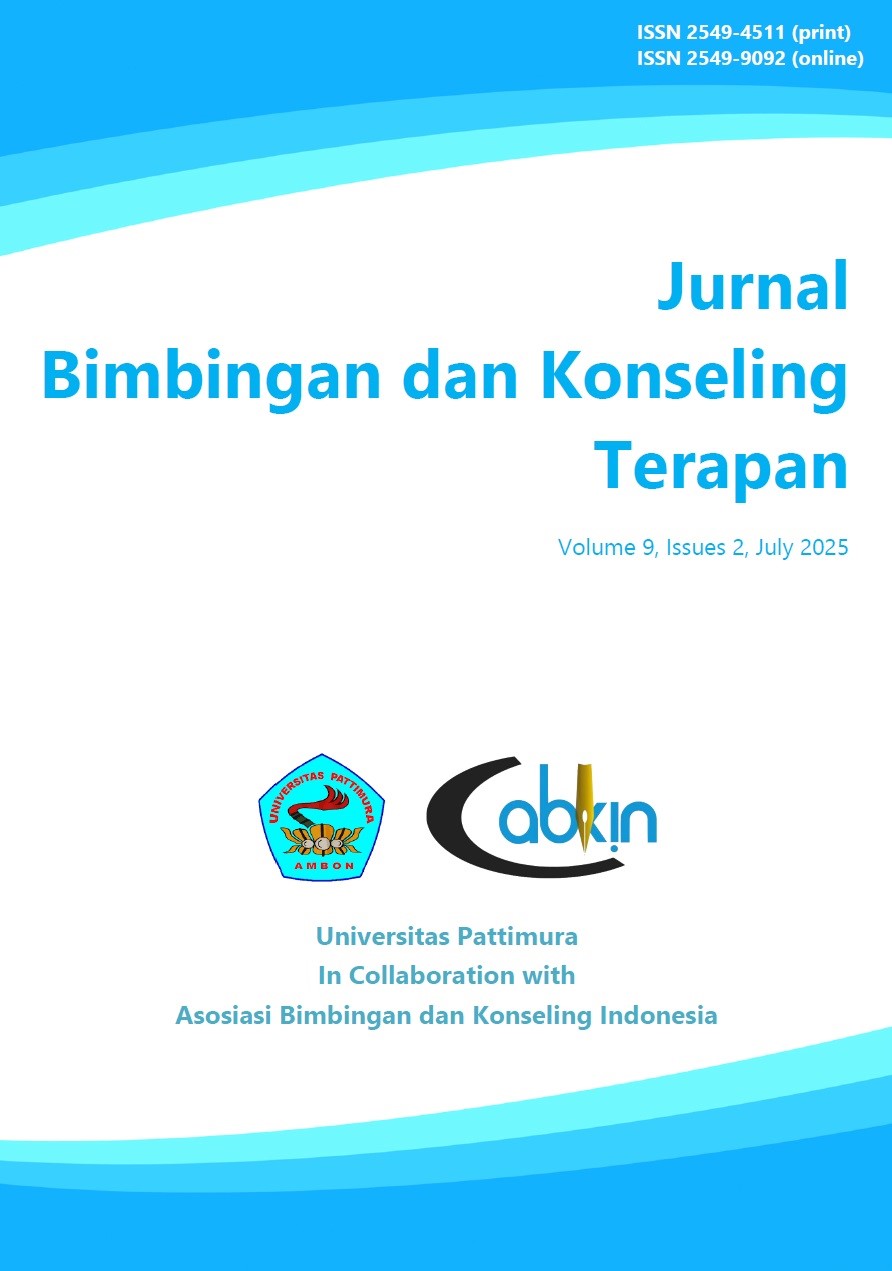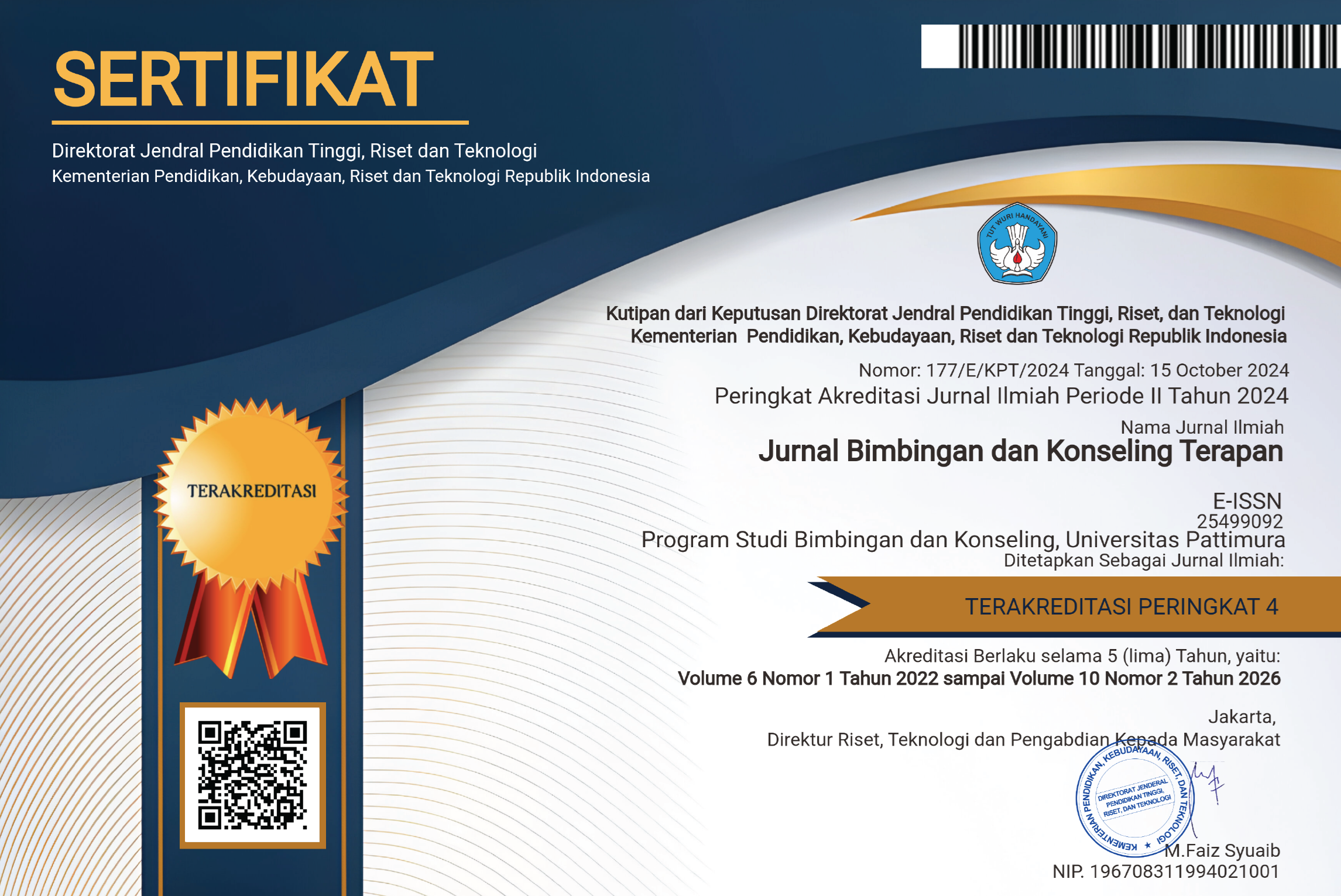Guidance and Counseling Across Borders: A Comparative Study of Counselor Well-Being in Indonesia and Malaysia
Abstract
The psychological well-being of school counselors is crucial for effective guidance and counseling services in educational settings, yet significant challenges related to administrative burden, professional recognition, and institutional support persist in both Indonesia and Malaysia. This study aimed to compare the psychological well-being of school counselors in these two countries using Ryff’s multidimensional framework, focusing on how contextual and institutional factors shape well-being outcomes. A quantitative comparative design was employed, utilizing Ryff’s Psychological Well-Being Scale and analyzing data from eight primary school counselors (four from Medan, Indonesia, and four from Penang, Malaysia). The Mann-Whitney U test revealed a statistically significant difference between the two groups (p = 0.020), with all Malaysian counselors exhibiting "very high" levels of psychological well-being, while Indonesian counselors ranged from "high" to "very high." These findings highlight that Malaysian counselors benefit from more structured professional support, lower administrative burdens, and greater institutional recognition compared to their Indonesian counterparts, who face challenges of role overload and limited support. The study contributes to comparative education literature by emphasizing the importance of systemic and organizational factors in shaping counselor well-being, and offers evidence-based insights for policymakers to improve support structures in schools. For future research, expanding the sample size, including secondary school counselors, and exploring longitudinal impacts of policy changes on counselor well-being are recommended.












